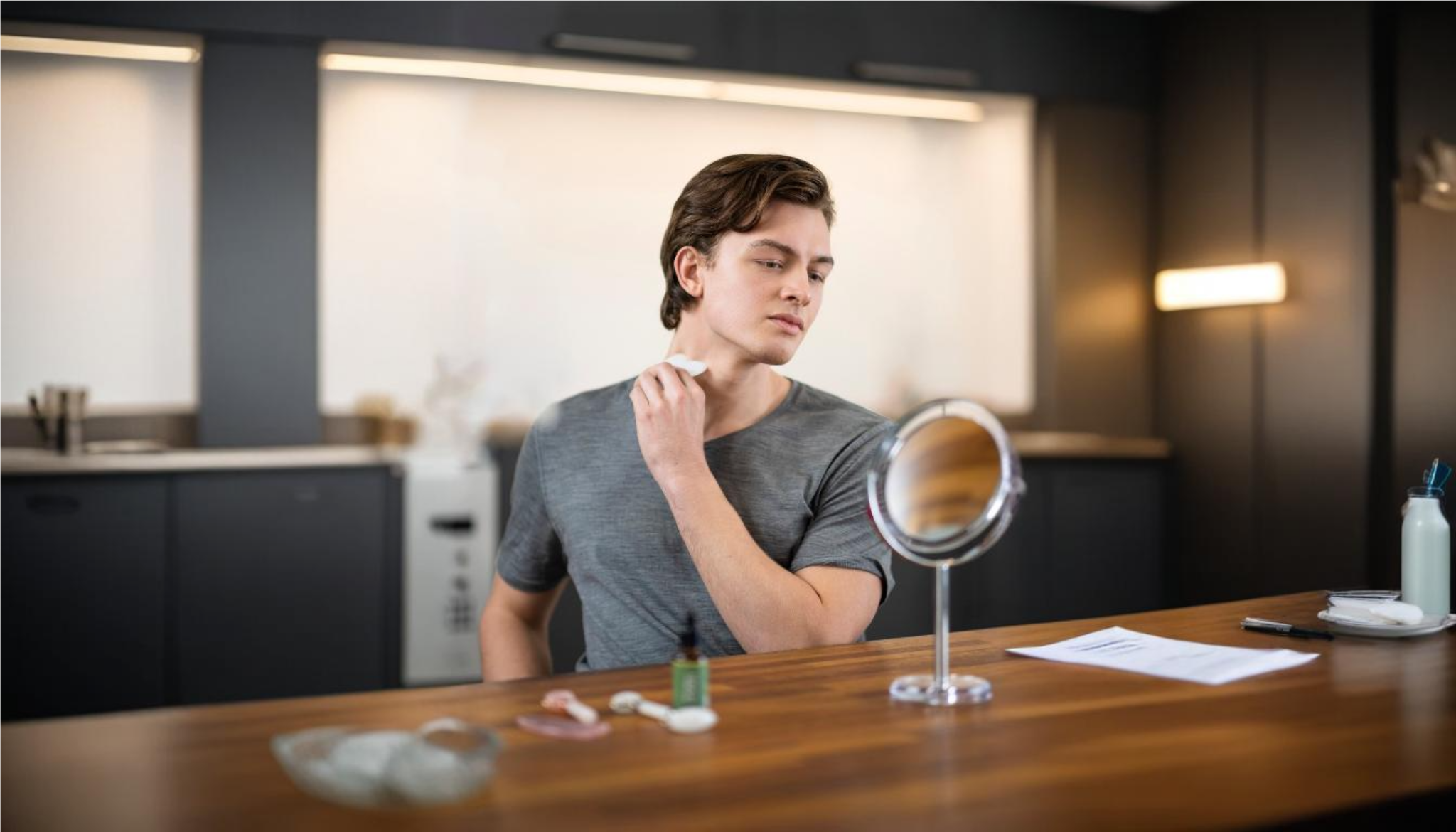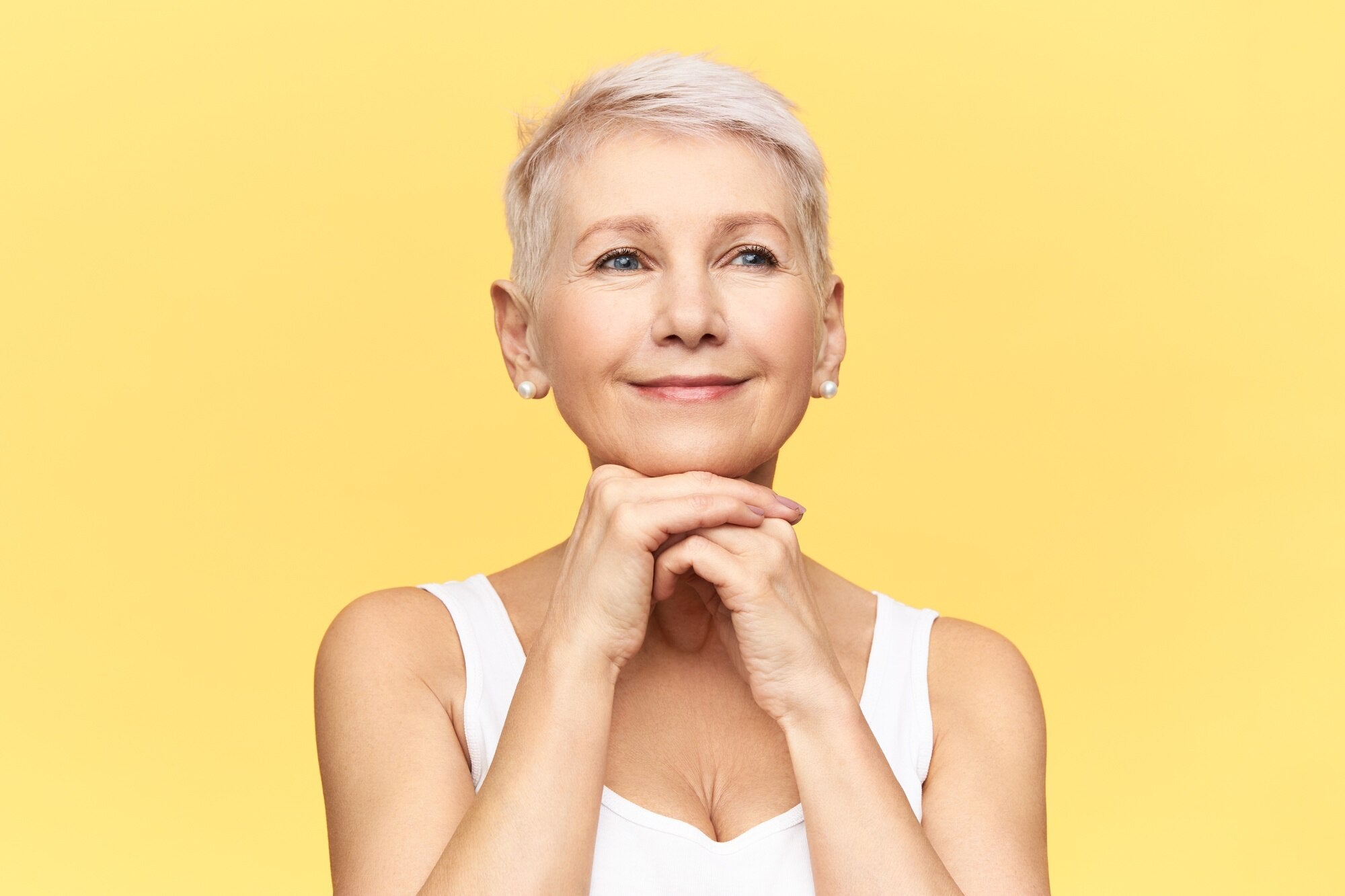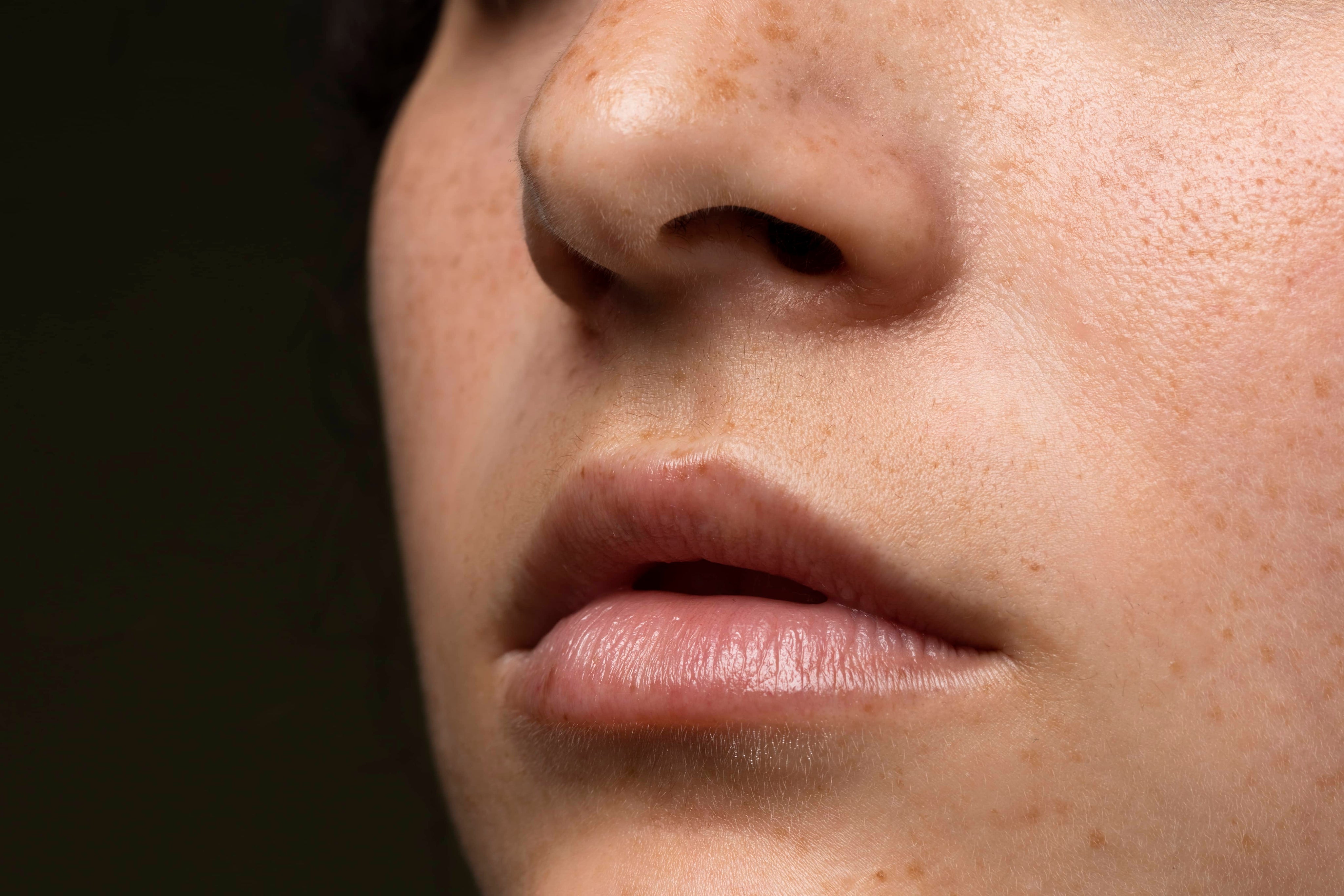What Causes Premature Skin Ageing and How to Combat It

In a world that values youth and vitality, understanding premature skin ageing is essential. This guide explores the factors that speed up ageing, including genetics, lifestyle, nutrition, environmental exposure, stress, and habits like smoking or heavy drinking. It highlights the causes and signs of premature ageing and provides practical strategies to help you maintain your skin's youthful glow. Whether you want to look refreshed or understand ageing better, this resource covers all your questions about premature ageing.
What is Premature Ageing?
Premature ageing refers to the early onset of signs of ageing, which can manifest as wrinkles, fine lines, and sagging skin, often before reaching the expected age. While ageing is a natural process that comes with time, premature ageing occurs due to external and internal factors that accelerate the breakdown of collagen and elastin in the skin.
Premature ageing can manifest at surprisingly early stages in life. While each person's biological predisposition is different, the first subtle signs can often appear in one's late twenties to early thirties. These initial signs might include fine lines around the eyes (often called crow's feet) or noticeable changes in skin texture and elasticity. Although these are not cause for immediate alarm, they do signal the onset of the skin’s natural ageing process being accelerated, potentially due to factors like stress, lifestyle choices, or environmental influences. Noticing these changes early can serve as a cue to adapt skincare routines and consider preventive measures to maintain a youthful appearance for longer.
Signs of Premature Ageing

- Fine Lines: These subtle lines are often among the first signs of ageing, typically appearing around the eyes and mouth. They can be exacerbated by factors such as sun exposure, smoking, and repetitive facial expressions. Maintaining a good skincare routine can help minimise their appearance.
- Wrinkles: As we age, our skin loses moisture and elasticity, leading to deeper creases that develop over time. Wrinkles commonly form on the forehead, neck, and around the mouth. They can be influenced by genetics, lifestyle choices, and environmental factors. Regular use of moisturisers and anti-ageing products can help reduce their prominence.
- Loss of Elasticity: With reduced collagen production, skin may begin to sag, leading to a loss of firmness. This is especially noticeable in areas like the jawline and cheeks. To combat this, incorporating products with ingredients like retinoids and hyaluronic acid can help boost collagen and improve skin structure.
- Uneven Skin Tone: As we age, age spots, discoloration, and hyperpigmentation can become more pronounced, creating an uneven skin tone. This can result from sun exposure, hormonal changes, and skin damage over the years. Exfoliating regularly and using brightening serums can help even out skin tone and restore a more uniform appearance.
- Dullness: A lack of radiance can be a sign of premature ageing. Factors such as stress, dehydration, and poor diet can contribute to a dull complexion. Incorporating hydrating masks and exfoliants into your routine can help revive your skin's natural glow.
- Puffy Eyes: Fluid retention and thinning skin can lead to puffiness around the eyes, making you look tired and older. Lack of sleep and poor diet can exacerbate this issue. Using cooling eye creams and getting adequate rest can help reduce puffiness.
- Thinning Hair: Premature ageing can also affect hair, leading to thinning and loss of volume. Factors like hormonal changes and stress can play a role. Using volumising shampoos and maintaining a healthy diet can support hair health.
- Prominent Pores: As skin loses elasticity, pores may appear larger and more noticeable. This can be influenced by oil production and environmental factors. Regular cleansing and the use of pore-minimising products can help improve skin texture.
16 Causes of Premature Ageing
- Sun Exposure: UV rays damage skin cells, leading to accelerated ageing.
- Smoking: Reduces blood flow to the skin, causing it to lose elasticity and appear older.
- Poor Diet: Lack of essential nutrients can lead to skin deterioration.
- Stress: Chronic stress can negatively impact skin health, resulting in visible signs of ageing.
- Lack of Hydration: Dehydration can make skin look dull and accentuate fine lines.
- Sleep Deprivation: Inadequate sleep disrupts skin repair processes, contributing to a tired appearance.
- Pollution: Exposure to environmental pollutants can damage skin and accelerate ageing.
- Excessive Alcohol Consumption: Alcohol can dehydrate the skin, leading to a loss of vitality.
- Not Using Sunscreen: Failing to protect against UV rays increases the risk of premature ageing.
- Inadequate Skincare Routine: Neglecting proper skincare can lead to skin issues and accelerated ageing.
- Genetic Predisposition: Some individuals may be more genetically inclined to experience signs of ageing earlier due to hereditary factors. While not changeable, understanding this predisposition can help in tailoring skincare regimes more effectively.
- Environmental Conditions: Conditions such as wind, extreme temperatures, and humidity fluctuations can lead to skin damage over time. Protecting the skin with appropriate clothing and skincare products is essential in such environments.
- Sedentary Lifestyle: Lack of physical activity can reduce blood circulation, impacting skin's oxygen and nutrient supply, leading to an aged appearance. Incorporating regular exercise can help maintain skin vitality.
- Frequent Weight Fluctuations: Repeated cycles of losing and gaining weight can affect the skin’s elasticity, leading to sagging and wrinkles. Maintaining a stable weight with a balanced diet and regular exercise can mitigate this risk.
- Chemical Exposure: Regular exposure to harsh chemicals, including certain household cleaning products, can strip the skin of its natural oils, resulting in dryness and an aged appearance. Using protective gloves and skin-friendly alternatives can help reduce exposure.
- Excessive Sugar Intake: High sugar consumption can trigger glycation, a process that damages collagen, accelerating skin ageing. Limiting sugar intake and following a balanced diet rich in antioxidants can help preserve skin health.
Other Factors Affecting The Rate at Which You Age
- Hormonal Imbalances: Hormones play a crucial role in maintaining skin health, and fluctuations can accelerate signs of ageing. Conditions such as menopause or thyroid disorders can lead to dryness, thinning, or loss of elasticity in the skin. Seeking professional advice for hormone management can aid in mitigating these effects.
- Lack of Professional Skincare Treatments: Opting for professional skincare treatments such as facials, peels, or laser therapies can significantly enhance skin quality and slow down ageing. These treatments offer targeted solutions for repairing damage and rejuvenating the skin, making them an exclusive addition to regular skincare routines.
- Medical Conditions - Certain medical conditions can affect skin health and appearance. For instance, autoimmune disorders like lupus and rheumatoid arthritis may cause rashes or inflammation on the skin, leading to premature ageing. Proper treatment and management of these conditions can help alleviate these effects.
- Medications: Some medications, such as steroids and chemotherapy drugs, can have adverse effects on the skin, making it more vulnerable to damage and accelerating ageing processes. Consulting with a healthcare provider about possible side effects and finding alternative treatments when available is crucial for maintaining healthy skin.
How to Combat Premature Ageing
1. Use Sunscreen: Daily application of broad-spectrum SPF can protect against UV damage.

2. Quit Smoking: Eliminating tobacco use can significantly improve skin health.
3. Eat a Balanced Diet: Incorporate foods rich in antioxidants, vitamins, and minerals.
4. Stay Hydrated: Drink plenty of water to keep your skin plump and healthy.
5. Get Enough Sleep: Aim for 7-9 hours of quality sleep to allow your skin to repair and rejuvenate.
6. Moisturise Regularly: Use a suitable moisturiser to keep your skin hydrated and maintain its barrier.

7. Limit Sun Exposure: Seek shade and avoid the sun during peak hours to reduce the risk of skin damage.
8. Exercise Regularly: Physical activity boosts circulation, promoting healthier skin. Any type of physical activity , from walking to high-intensity workouts, can help but ultimately, building muscle combats premature skin ageing by boosting circulation, increasing collagen production, reducing inflammation, and improving skin elasticity. It also provides structure to the skin, preventing sagging, and helps maintain weight stability, which protects skin from damage.
9. Manage Stress: Practice relaxation techniques like yoga or meditation to reduce stress, which can negatively impact your skin.
10. Avoid Harsh Chemicals: Opt for gentle skincare products to prevent irritation and maintain skin health.
11. Use Retinoids: vitamin A derivatives have been proven to stimulate collagen production, reducing wrinkles and fine lines. Incorporating retinoids into your skincare routine can enhance cell turnover, promoting smoother, more even-toned skin. They also help to unclog pores, reduce acne, and fade hyperpigmentation. Over time, consistent use of retinoids can significantly improve the skin's texture and resilience, making them a powerful anti-ageing ingredient. However, it's essential to start with a lower concentration to minimise irritation and always follow with sunscreen, as retinoids can increase skin sensitivity to the sun.


13. Seek Professional Skincare Treatments: As mentioned earlier, professional treatments can significantly improve skin quality and slow down the ageing process. Consult a dermatologist for personalised recommendations based on your skin concerns.
14. Don't Be Afraid to Use Cosmetic Products Intentionally: Targeted cosmetic treatments can help reduce visible signs of premature ageing, like dark circles and puffiness, giving your skin a refreshed and youthful appearance. The eye area, in particular, is especially prone to premature ageing, with dark circles and puffiness becoming more noticeable over time. A targeted cosmetic treatment can help visibly brighten and refresh the under-eye area for a more youthful look.

15. Don't Overlook the Lashes and Brows: Thinning or brittle hairs can be a subtle sign of premature ageing. A lash and brow serum can help nourish and strengthen them, promoting a fuller, healthier look over time. Treatments like lash lifts, tints, and brow lamination can also enhance their fullness and definition for a more youthful look.

Revive7 Revitalizing Lash Serum

Revive7 Revitalizing Brow Serum

Eyelash Lift & Eyebrow Lamination (With or Without Tint)

16. Stay Consistent with Skincare Routine: Consistency is key when it comes to skincare. Stick to a regular routine that includes cleansing, toning, moisturising, and protecting your skin with SPF. Regularly exfoliate to remove dead skin cells and allow for better product absorption. Also incorporating skin serums and creams with powerful antioxidants and peptides goes a long way.



iS CLINICAL Youth Intensive Creme 50ml
Signs You Are Ageing Well
- Radiant Skin: A healthy glow is a good indication of effective skincare.
- Minimal Wrinkles: Fewer visible signs of ageing can suggest good genetics and lifestyle choices.
- Even Skin Tone: Consistent skincare routines can help maintain an even complexion.
- Hydrated Skin: Well-moisturised skin appears plump and elastic, indicating proper hydration.
- Reduced Pores: Smaller, less noticeable pores can reflect effective cleansing and skincare practices.
- Bright Eyes: Clear and vibrant eyes can be a sign of overall health and proper sleep.
- Firmness: Skin that feels firm and resilient suggests good collagen production and care.
- Smooth Texture: Soft, smooth skin indicates effective exfoliation and maintenance of skin health.
- Healthy Glow: A luminous complexion can also indicate a balanced diet and sufficient hydration.
- Youthful Appearance: Overall, a combination of the above factors contributes to a youthful appearance that can boost your confidence.
While these tips and signs are to look out for, remember that embracing the skin you're in with confidence is the ultimate testament to inherent beauty. While there are myriad ways to nurture and enhance skin health, it is crucial to recognise that true beauty emanates from self-acceptance and self-love. Each individual carries a unique story etched in their skin, and it is this individuality that defines elegance.
Whether you follow an intricate skincare regimen or take a minimalist approach, remember that beauty transcends external appearances. Your skin, with its perfect imperfections, is a reflection of your journey—cherish and celebrate it, for it is what makes you uniquely beautiful.
Premature Ageing FAQs
What deficiency causes early ageing?
Deficiencies in vitamins A, C, and E, as well as essential fatty acids, can contribute to premature ageing.
Do white people age faster?
Ageing can vary by ethnicity, but factors such as genetics and environmental exposure play significant roles.
Does alcohol make you age faster?
Yes, excessive alcohol consumption can dehydrate the skin and lead to an aged appearance.
Stop Premature Ageing in Its Tracks
When it comes to ageing gracefully, taking proactive steps today can yield luminous rewards tomorrow. Embrace a skincare and lifestyle regimen that nourishes and protects, ensuring that your skin remains as resilient and vibrant as your spirit. That being said, consulting with a professional will help you personalised treatments tailored to address your skin concerns. Start your holistic skincare transformation today and see the tangible benefits for yourself. Book a consultation today to see the Skin to Heart difference today.
- Tags: aging and wrinkles skin care
0 comments


